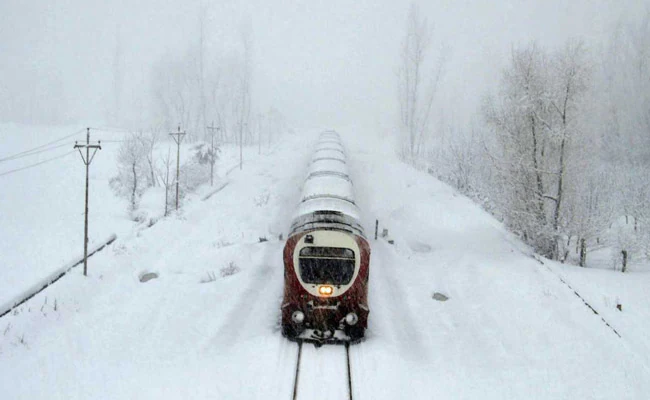New Delhi: The Indian Railways has decided to enhance the maximum permissible speed of trains to 75 km per hour from the present 60 km per hour to combat delays during the foggy winter months, the national transporter said on Tuesday.
This, it said, would be possible due to the presence of fog devices that would be provided to loco pilots in all locomotives running in fog-affected areas.
“It has been decided that with the use of fog devices in locomotives, the maximum permissible speed during foggy/inclement weather conditions can be enhanced from 60 kmph (km per hour) to 75 kmph,” the Indian Railways said.
The national transporter has also asked railway zones to keep adequate supply of detonators — appliances fixed on rails that explode with a loud report when an engine passes so as to attract the driver’s attention.
It also said lime marking across the track at sighting boards (or at distant signals in case of double-distant signals) must be done.
“All signal sighting boards, whistle boards, fog signal posts and busy vulnerable level crossing gates, which are accident prone, should either be painted or provided with yellow/black luminous strips. The work of repainting for their proper visibility should be completed before onset of the foggy season. Lifting barriers at busy level crossings, where necessary, to be provided with yellow/black luminous indication strips.
“The new existing Seating Cum Luggage Rakes (SLRs) are already being fitted with LED-based flasher tail lights, therefore, the existing SLRs with fixed red lights should be modified and fixed with LED lights. This will be a very important step to ensure safety in foggy weather,” the Railways said.
It has also asked the railways to ensure that retro reflective strips in ‘sigma’ shape for identification of stop signals were provided as per existing instructions.
The Railways may also create infrastructure at new/additional crew changing locations.
“During fog, when the loco pilot in his judgement feels that visibility is restricted due to fog, he shall run at a speed at which he can control the train so as to be prepared to stop short of any obstruction; this speed shall in any case not be more than 75 kmph (km per hour).
It has also directed loco pilots to whistle frequently to warn the gatemen and road users of an approaching train at level crossings.











